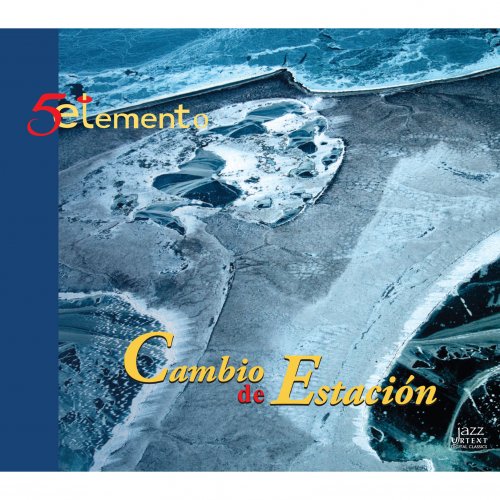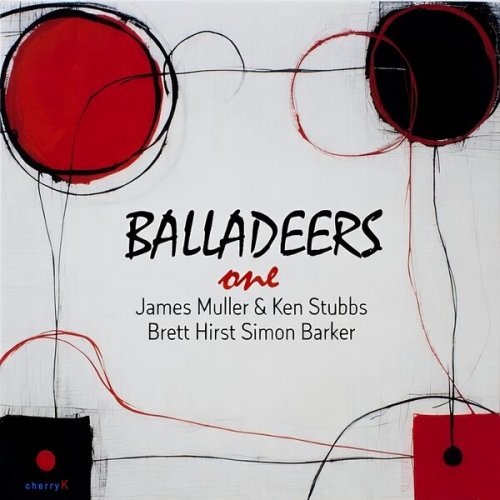Kathleen Battle, Ann Murray, David Rendall, Matti Salminen, Daniel Barenboim - Mozart - Requiem (1985)
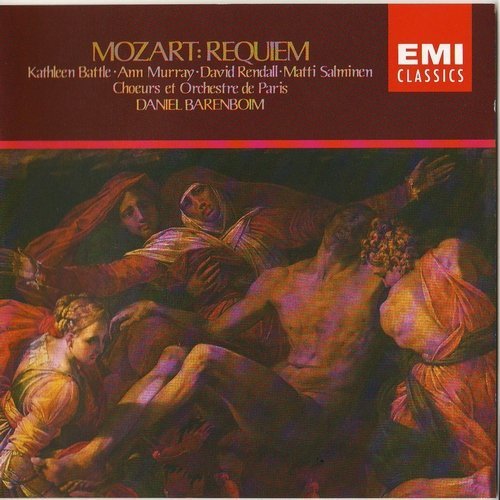
Artist: Kathleen Battle, Ann Murray, David Rendall, Matti Salminen, Daniel Barenboim
Title: Mozart - Requiem
Year Of Release: 1985
Label: EMI Classics
Genre: Classical
Quality: FLAC (tracks+.cue,log,scans)
Total Time: 55:39
Total Size: 278 Mb
WebSite: Album Preview
Tracklist: Title: Mozart - Requiem
Year Of Release: 1985
Label: EMI Classics
Genre: Classical
Quality: FLAC (tracks+.cue,log,scans)
Total Time: 55:39
Total Size: 278 Mb
WebSite: Album Preview
01. I. Introitus. Requiem Aeternam (05:31)
02. II. Kyrie Eleison (02:46)
03. III: Sequenz. Dies Irae (01:46)
04. Tuba Mirum (04:15)
05. Rex Tremendae (02:29)
06. Recordare (06:16)
07. Confutatis (02:45)
08. Lacrimosa (03:14)
09. IV: Offertorium. Domine Jesu Christe (04:02)
10. Hostias et Precis (05:12)
11. V. Sanctus (01:44)
12. VI. Benedictus (06:07)
13. VII. Agnus Dei (03:16)
14. VIII. Communio: Lux Aeterna (06:17)
Performers:
Kathleen Battle - Soprano,
Ann Murray - Mezzo-soprano,
David Rendall - Tenor,
Matti Salminen - Bass
Choeurs et Orchestre de Paris
Daniel Barenboim
(chorus Master: Arthur Oldham)
German choir director Bruno Kittel (1870-1948) occupied a leading place in Europe during the first half of the 20th century. His 'Kittelsche Chor' was founded 1902 and soon became renowned as one of the best choirs in the nation and even in the entire Europe. Kittel is also known for his work with conductors Oscar Fried and Wilhelm Furtwangler (the Berlin 1942 edition of Beethoven's Ninth Symphony is a robust performance that also includes Tilla Briem). Notwithstanding limited sonics, the 1941 recording of Mozart's Requiem is a moving account; heightened by elite-status choral singing and by the masterly orchestral control of the Berlin Philharmonic, the tableau is not complete without the very good--and sometimes impressive--soloists. This album discloses a trailblazing account of Mozart's justly famous Requiem. Kittel's will remain a classic reading of the masterpiece : Power, tension and the heavenly sense of a tragic era, but not without an unmistakable mozartian temperament. His approach, typically 'germanic' and rather straightforward in character, was a good fit for the Berlin Philharmonic's glorious sound. Kittel also produced some Bach, including a very good version of the StMatthew Passion--of which some excerpts are to be found here. This recording of the Requiem is meaningful because it is one of the first studio recordings (maybe the very first) of the work. It also documents music making during the Nazi regime. The somewhat somber light of the work is reflected powerfully, and despite the precarious quality of sound we do hear a certain amount of details--enough so, i can assure, to enjoy this momentum of sensational musical memorabilia.
DOWNLOAD FROM ISRA.CLOUD
Mozart Requiem Barenboim Battle Murray Rendall Salminen 85 1405.rar - 278.2 MB
Mozart Requiem Barenboim Battle Murray Rendall Salminen 85 1405.rar - 278.2 MB

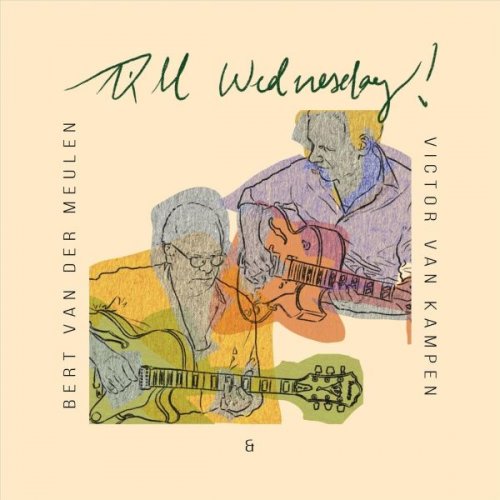
![Marco Detto - Improvvisamente (2026) [Hi-Res] Marco Detto - Improvvisamente (2026) [Hi-Res]](https://www.dibpic.com/uploads/posts/2026-01/1768638914_f4xbzset03dwk_600.jpg)
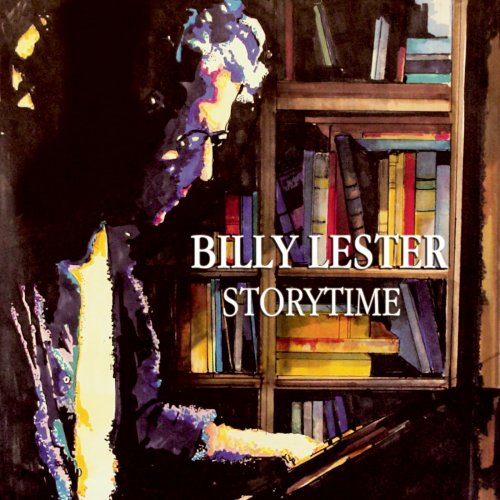
![Criolo, Amaro Freitas, Dino D'Santiago - CRIOLO, AMARO E DINO (2026) [Hi-Res] Criolo, Amaro Freitas, Dino D'Santiago - CRIOLO, AMARO E DINO (2026) [Hi-Res]](https://img.israbox.com/img/2026-01/17/usrf0slui6mhit9yit6clcqw9.jpg)
